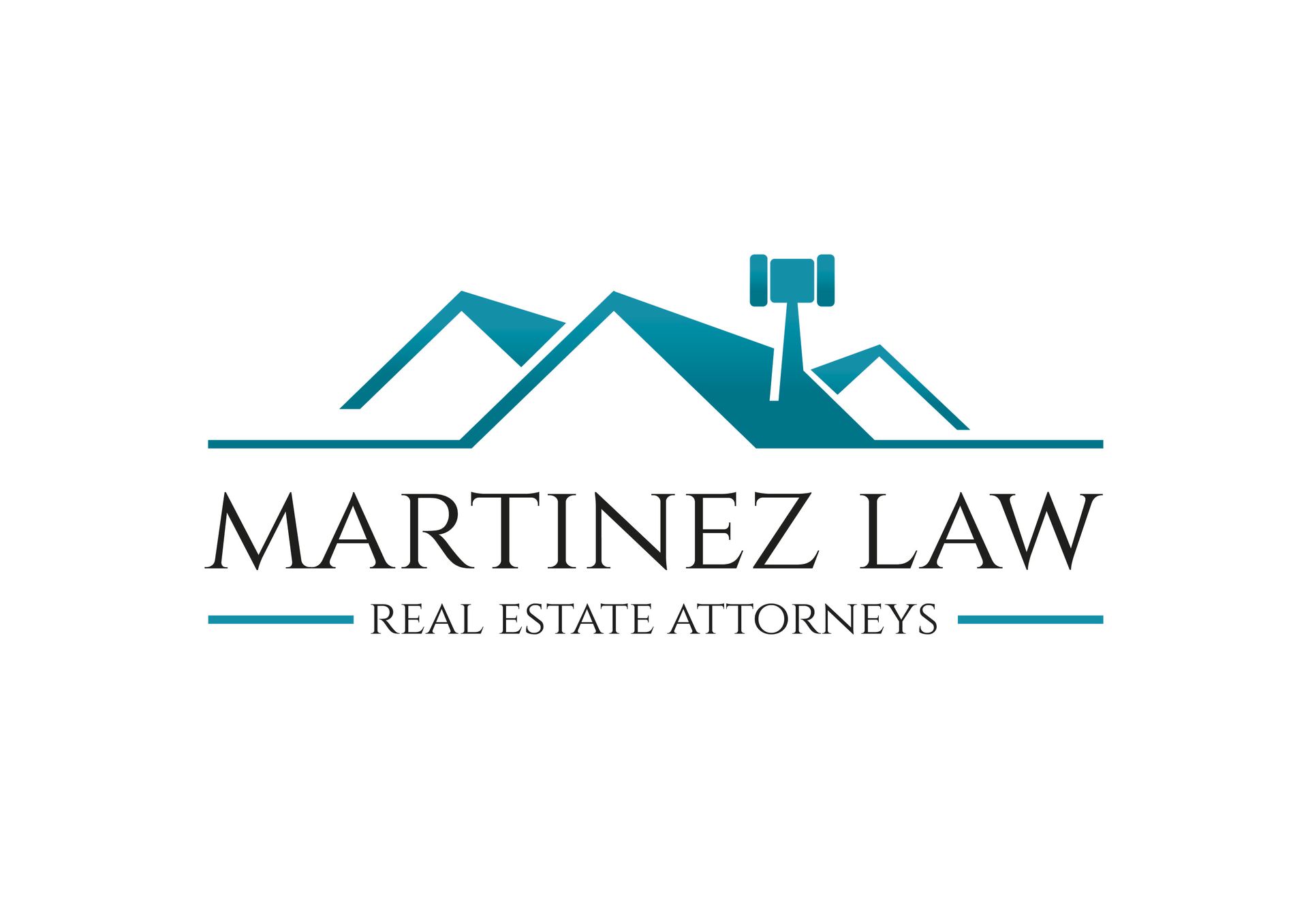Blog

Florida's homestead laws provide some of the strongest property protections in the country. Article X, Section 4 of the Florida Constitution shields qualifying homestead property from forced sale and most judgment liens. Although, there are important exceptions that every homeowner, buyer, and seller should understand. Whether you are preparing to sell your home or evaluating a title issue, knowing how homestead exemptions work can allow you to protect your rights and avoid costly issues that may arise. Florida's Constitutional Homestead Exemption Under Article X, Section 4, Florida homeowners receive powerful protection against forced sale or judgment liens. In most situations, a creditor cannot force the sale of a homestead property to satisfy a debt, and a judgment will not attach to the homestead. However, the Constitution lists specific exceptions, meaning certain obligations can create valid liens, even against a homestead. These include: Payment of property taxes and assessments Obligations related to purchase, improvement, or repair of the property Obligations contracted for house, field, or labor performed on realty Outside of these limited categories, most personal judgments do not attach to a homestead property and cannot be used to force its sale. Examples of these personal judgments include credit card debt, personal loans, vehicle deficiencies, and breach of contract. Clearing Title: How Homestead Protects Sellers at Closing When a seller has outstanding judgments, buyers often worry whether those judgments cloud the title. If the property is the seller's homestead, most judgments have no legal effect. To clear title, the closing agent needs only to verify that the property was the seller's homestead at the time the judgment was recorded. This is typically done through a Homestead Affidavit, which is signed at closing. Additional Procedures In some situations, specifically when there are concerns, additional steps may be required. If there is concern a creditor might dispute the homestead status, a Notice of Homestead may be filed to further protect the transaction. Along with this, before relying on a homestead affidavit to clear a judgment, closing agents must consult with underwriting to confirm the affidavit is sufficient for that specific judgment. These safeguards ensure that the buyer receives clear title and that the seller's homestead protections are properly documented. Judgments That Can Attach to Homestead Property While Florida's homestead protections are extensive, they are not absolute. Certain liens are not avoidable, even with homestead status. These include: Property tax liens Special assessment liens Any constitutional exceptions listed above These obligations remain enforceable against the homestead, and title cannot be cleared until they are satisfied. Why This Matters for Homeowners and Sellers Understanding what types of judgments attach, or do not attach, to a homestead is crucial, especially when preparing to sell a home, addressing title issues, responding to creditor actions, and completing a real estate closing. Florida's homestead protections are designed to safeguard families, but navigating these rules can be complex. Working with experienced real estate counsel and a knowledgeable title team ensures your property rights remain protected throughout the process.

On December 1, 2025, the U.S. Treasury's Financial Crimes Enforcement Network (FinCEN) will implement a sweeping new rule aimed at increasing transparency in the residential real estate market. Beginning March 1, 2026, certain real estate professionals involved in non-financed transfers of residential property to legal entities or trusts will be required to file a Real Estate Report with FinCEN. This is intended to curb money laundering and illicit finance risks that have historically exploited non-transparent real estate transactions. What Is the Real Estate Report? The Real Estate Report is a new filing requirement for professionals involved in specific real estate closings and settlements. It applies only to non-financed transfers of residential real estate to legal entities or trusts, which FinCEN has identified as high-risk for illicit finance. Key features include: Mandatory filing by a designated real estate professional (the "reporting person"). Submission to FinCEN's secure BSA database, which is not available to the public. Strict controls on how law enforcement may use and re-share the information. Public comment opportunities on the form before implementation. FinCEN expects these filings to strengthen anti-money-laundering efforts by shining light on beneficial ownership in transactions. What Counts as a Reportable Transfer? A Real Estate Report must be filed for any non-financed transfer of ownership interest in residential property to an entity or trust. Residential property includes s ingle-family homes, t ownhouses, c ondominiums, c ooperative units, e ntire buildings intended for occupancy by 1-4 families, and p roperties with mixed use (residence above commercial storefront). A property qualifies if it meets any of the following: Contains a structure principally designed for 1-4 families Is land on which the transferee intends to build such a structure Is a 1-4 family unit within a larger structure Represents a cooperative housing share connected to U.S. real estate. Transfer of residential property includes a ny deed or ownership-document transfer, t ransfer of cooperative shares, stock, or certificates, p urchases for any dollar amount, and g ifts or transfers with no consideration. What is a "non-financed" transfer? A transaction is non-financed if no transferee receives credit. This includes it being secured by the transferred property and extended by a financial institution subject to AML program and SAR requirements. If the lender is not required to maintain an AML/CFT program or file SARs, the transfer still counts as non-financed and may require reporting. Non-Reportable Transfers Transfers that are not considered reportable include easements, transfers resulting from death (will, trust, intestacy, survivorship, and TOD deed), transfers tied to divorce or civil union dissolution, bankrupcty-related transfers, transfers supervised by a U.S. court, transfers for no consideration to a trust where the transferor/spouse is a settlor, transfers to a qualified intermediary for 1031 exchanges, and transfers where no reporting person exists. Who Is the Reporting Person? FinCEN assigns the reporting obligation to only one business involved in the transaction. A reporting person is identified by the reporting cascade (default) or a written designation agreement among the businesses involved. The Reporting Cascade If the first person on this list is involved in the transfer, they become the reporting person. If not, move to the next, and so on: The closing/settlement agent listed on the closing statement The person conducting the closing/settlement The person who files the deed or instrument with the recordation office The title insurer underwriting the owner's title policy for the transferee The person disbursing the greatest amount of funds (escrow/trust accounts) The person evaluating title status The person who prepares the deed or transfer instrument If none of these functions occur, no report must be filed. What Information Must Be Reported? The Real Estate Report requires detailed transaction information. This includes the reporting person's identifying information, property information (address and type of residential property), transferor information, transferee entity or trust, individuals representing the transferee, beneficial owners of the transferee entity or trust, total consideration paid, and payment details (method, source of funds, etc.). How Should Reporting Persons Gather Information? FinCEN allows reporting persons to reasonably rely on information provided by others, but with limits. The general reliance standard is that a reporting person may rely on information from others unless they know or should know it is unreliable. Special rules for beneficial ownership information include that a reporting person may rely only on the transferee or their representative and must certify, in writing, that the information is accurate. Filing Deadlines and Recordkeeping Reporting persons must file the Real Estate Report by the last day of the month following the month of closing or within 30 calendar days after closing, whichever is later. In most situations, this gives professionals 30-60 days to file. Recordkeeping requirements will align with BSA retention rules. What Should Real Estate Professionals Do Now? With the rule taking effect in 2026, now is the time to prepare. This should entail mapping out your office's role in the reporting cascade, updating intake forms to capture beneficial ownership information, training staff on recognizing non-financed transfers, implementing document retention and compliance procedures, and reviewing opportunities for written designation agreements with closing partners. The new FinCEN rule brings significant change to U.S. residential closings, especially for transactions involving legal entities and trusts. By preparing early, real estate professionals can ensure smooth compliance and reduce the risk of penalties once the rule becomes mandatory.

In Florida real estate transactions, the contract governing the sale and purchase of property is one of the most critical documents in the process. Two of the most commonly used agreements, including the FAR/BAR Contract and the Contract for Residential Sale and Purchase (CRSP), set clear expectations for both buyers and sellers, outlining their rights, responsibilities, and remedies in the event of a default or dispute. Understanding these provisions is essential, as failure to comply with contract terms can lead to financial loss, legal action, and prolonged delays in closing. This is especially important because disputes over deposits, performance obligations, and enforcement of contract terms are among the most common issues in Florida real estate. By having a clear understanding of how the FAR/BAR and CRSP contracts handle buyer and seller defaults, as well as the structured processes for dispute resolution, both parties can better protect their interests and navigate conflicts effectively. FAR/BAR Contract Buyer Default When a buyer fails to meet their obligations under their contract, such as not paying the deposit on time, the seller has the right to two remedial approaches. For one, the seller can choose to keep the deposit as liquidated damages. This amount is treated as agreed compensation for the buyer's breach and, once accepted, releases both parties from any further responsibility under the contract in full settlement of any claims. Alternatively, the seller may pursue legal action to enforce the contract terms through equitable remedies. Seller Default If the seller fails to fulfill their obligations under their contract, other than being unable to deliver marketable title despite making a reasonable effort, the buyer has options regarding a remedy. The buyer may choose to have their deposit returned, and doing so does not waive their right to pursue damages caused by the seller's breach. In addition, the buyer may pursue legal remedies, including filing a claim for damages or seeking specific performance to enforce the contract. Dispute Resolution If a dispute arises between the buyer and seller regarding the contract, whether it relates to a breach, enforcement, or interpretation, and they are unable to resolve it, the FAR/BAR contract outlines a two-step process. Once both parties make conflicting demands about the deposit, they have 10 days to resolve the issue between themselves. If they cannot reach an agreement within this timeframe, the matter then proceeds to mediation. During mediation, the parties shall attempt to settle the dispute in good faith, following Florida's mediation rules. The mediator must either be certified or have experience in real estate. If urgent legal action, such as injunctive relief, is needed, a party may bypass mediation and proceed directly to court. If mediation does not resolve the dispute, either party may then file a lawsuit. This dispute resolution provision remains enforceable even after the contract has closed or been terminated. Attorneys' Fees and Costs Under a FAR/BAR contract, if mediation takes place, the buyer and seller must each pay half of the mediator's fee. Additionally, each party is responsible for their own expenses, including attorney's fees, related to the mitigation process. If the dispute proceeds to litigation, the prevailing party is entitled to recover their legal costs and reasonable attorney's fees by the non-prevailing party. These provisions remain enforceable even after the contract is closed or terminated. Contract for Residential Sale and Purchase (CRSP) Buyer Default If the buyer fails to fulfill the terms of their contract in a timely manner, such as failing to make the required deposit payment, the seller has two options. The seller may choose to keep all deposits paid, or agreed to be paid, as liquidated damages. Alternatively, the seller may pursue specific performance to enforce the contract. Seller Default If a seller fails to carry out their obligations under their contract, other than being unable to provide a marketable title despite making a diligent effort, the buyer has remedies. The buyer may choose to have their deposit returned, and doing so does not waive their right to pursue legal action for damages caused by the seller's breach. The buyer may also seek to enforce the contract through specific performance. Dispute Resolution Under a CRSP Contract, any disputes arising from the transaction will be settled under Florida law as follows: Deposit Disputes: If there is a disagreement about who is entitled to deposits made or agreed to be made, the buyer and seller have 30 days from the date of conflicting demands to resolve the issue through mediation. If mediation is unsuccessful and the law requires it, the escrow agent may submit the matter to arbitration, a Florida court, or the Florida Real Estate Commission. Other Disputes: Any other disagreements involving the buyer, seller, or broker must also first be addressed through mediation within 30 days of the dispute arising. If unresolved, the matter will be settled through binding arbitration in the county where the property is located. Arbitration must follow Florida law and cannot be used if a civil lawsuit on the same issue would be barred by Florida's statute of limitations. The arbitrator cannot modify the terms of the contract and may only issue remedies allowed by the contract. Decisions must be based on the weight of the evidence and include written findings and legal justification. If both parties agree, they may use legal discovery rules, and any related disputes will be resolved by the arbitrator. These provisions continue even after closings. Mediation and Arbitration Costs: Mediation involves a neutral party helping to resolve a dispute but is not empowered to impose a settlement on the parties. It will be in accordance with the rules of the American Arbitration Association (AAA) or another agreed mediator, and the mediation cost will be split equally. On the other hand, arbitration involves a binding decision by a neutral arbitrator. It will also follow AAA rules or those of another agreed arbitrator. Each party will cover their own legal costs and attorney fees and equally cover the arbitrator's fees and administrative expenses. Understanding the escrow dispute process is essential for both buyers and sellers in Florida real estate transactions. Whether handling buyer or seller default, the FAR/BAR and CRSP contracts outline specific remedies and structured paths for resolving deposit disputes. Knowledge of the rights and obligations prescribed by a contract ensures protection of interests during mediation, potential litigation, and arbitration.

What is the 50% rule? The FEMA 50% Rule is a federal regulation that prohibits substantial improvements to a structure located in Special Flood Hazard Areas (SFHA) that exceed 50% of its market value, unless the entire structure is brought into full compliance with current flood regulations. If the 50% Rule applies, the improvements may require elevating the structure above the Base Flood Elevation (BFE), using flood-resistant materials below the BFE, installing proper flood venting, etc. These improvements must be compliant with the National Flood Insurance Program, the Florida Building Code, and local land development codes. Substantial Improvement Under the FEMA 50% Rule, substantial improvement refers to any combination of repairs, reconstruction, rehabilitation, addition, or other improvement of a building, the cumulative cost of which equals or exceeds 50% of the pre-damaged market value of the building or structure. This applies to both residential and commercial properties located in Special Flood Hazard Areas. If a project meets the definition of "substantial improvement," it is considered new construction, and the entire structure must be elevated to or above the Base Flood Elevation and otherwise made fully flood compliant. Market Value Market value is defined as the price at which a property will change hands between a willing buyer and a willing seller, both having reasonable knowledge of all relevant facts. This value is used to determine whether a proposed improvement meets the 50% threshold for a substantial improvement under the FEMA 50% Rule. To determine the market value of a structure, there are two approaches that can be used. The first approach includes utilizing the county's Property Appraiser's website assessment for the market value of the structure only. As an alternative, an independent appraisal can be done for the structure to obtain an actual cash value appraisal of the pre-damaged structure. This appraisal must be prepared and certified by a property appraiser licensed in the State of Florida. The latter is the most accurate approach to defining the market value of a structure. Replacement cost cannot be substituted for market value. A replacement cost is the cost of replacing the structure with a structure of like kind, using present-day costs for labor and materials. This value is often much greater than the market value. Exceptions There are certain improvements that are exempt from being counted toward the 50% threshold for substantial improvement under the 50% Rule. These exceptions promote safety, preservation, and disaster resilience. Improvements that are not subject to the 50% Rule include: Any project for improvement that a building requires to correct existing health, sanitary, or safety code violations. Any repair, rehabilitation, or addition constituting substantial improvement to a designated historic structure, so long as the owner receives written approval from the Florida Division of Historic Resources. Costs of alterations or improvements whose express purpose is the mitigation of future storm damage, provided the cost of such improvements does not exceed 50% of the market value of the structure over any one-year period. City of Tampa The City of Tampa utilizes the same definition of "substantial damage" as FEMA, which states that substantial damage occurs when the cost to repair a structure is equal to or exceeds 50% of its market value, regardless of the cause. This is particularly for properties located within Special Flood Hazard Areas, such as Zones AE and VE. A Substantial Improvement Form must be filled out by the property owner, but is only required if the property is in a Special Flood Hazard Area (including zones VE or AE), and "Storm Damage" should be selected. The steps to complete this process include: Estimate Depreciated Market Value: Use the property appraiser's estimate or obtain a certified appraisal. Estimate Cost of Construction: Apply $64.85 (Tampa's standardized construction cost per square foot) to the square footage of the construction/work area. Compare Costs to Market Value: The cost of construction must be less than 60% of the structure's depreciated value based on the Property Appraiser, or 50% if based on a certified appraisal of the structure. If the threshold is exceeded, the entire structure must be elevated to meet current flood standards, or the structure must be demolished and rebuilt in full compliance with FEMA flood standards, the Florida Building Code, and the City of Tampa floodplain management regulations. Frequently Asked Questions How is the value of an improvement determined? The cost of improvement includes the total costs for repair, reconstruction, rehabilitation, additions, or other improvements to the structure. Costs include all materials, labor, built-in appliances, overhead, profit, demolition, and repairs made to the structure. Each county has a process to submit costs for approval. Is the cost of improvement discounted if the owner does the work or the materials are donated? No. The value placed on materials must equal the actual or estimated cost. The value placed on labor must be estimated based on applicable hourly wage sales for the type of construction work. Improvement costs cannot be discounted to keep the cost estimate below 50%. Are there any items that can be excluded from the cost of improvement? Items that are not counted toward the cost of improvement include plans, specifications, surveys, building permits, and other items separate from or incidental to the repair or improvement. Outdoor landscaping and improvements to the land, such as driveways, pools, seawalls, etc., are not included in the cost of improvement. What happens when a structure is damaged, but not substantially, and during the repair the owner also makes an addition to the structure? If the owner of a structure, which was 30% damaged by a flood, decides to add a room during the repair process, the combined total of these improvements must be equal to or less than 50% of the structure's pre-damaged market value to not be considered a substantial improvement.

Florida continues to strengthen consumer protection in real estate transactions. In June, the governor signed into law and expanded the residential flood disclosure bill, which goes into effect on October 1, 2025. Current Law Since last year, Florida Statute 689.302 has required residential property sellers to disclose certain flood risks to prospective purchasers. Under the existing statute, sellers must state whether: They have filed an insurance claim relating to flood damage on the property. They have received federal assistance for flood damage. What's Changing on October 1, 2025? The new law expands flood disclosure obligations for sellers, developers, and landlords. For Residential Sellers: In addition to the above, sellers must now disclose if they are aware of any flood-related damage to the property during their ownership. For Developers of Residential Condominiums: Must disclose if they know of flood damage to the property during their ownership. Must state whether they have filed flood-related insurance claims. Must disclose whether they have received federal assistance related to flood damage. For Residential Landlords: For the first time, landlords are now obligated to disclose flood risks to prospective tenants. If a landlord fails to provide truthful disclosures and a tenant suffers a substantial loss or damage to personal property due to flooding, the tenant may terminate the lease within a specified time frame. Upon proper termination, the landlord must refund all amounts paid in advance. Importantly, tenants remain responsible for any rent or fees owed before the termination date. Why This Matters This expansion represents a significant step toward transparency in Florida's real estate market, ensuring that buyers and renters have critical information about potential flood risks before making a decision. Next Steps Sellers, landlords, and developers should review their disclosure practices carefully. Those with questions are encouraged to consult with their attorney regarding compliance. An updated Flood Disclosure form will be released on October 1, 2025. Conclusion With Florida's growing vulnerability to flooding, these new disclosure requirements aim to protect both buyers and tenants from unforeseen risks while encouraging property owners and developers to be more transparent. Whether you are selling, leasing, or developing residential property, it is important to be proactive and informed. Staying ahead of these requirements not only helps ensure legal compliance but also builds trust and confidence in Florida's real estate market.

Florida Statute 689.302 Florida Statute Section 689.302 includes new requirements for flood disclosures. This statute requires that a seller must complete and provide a flood disclosure to a purchaser of residential real property at or before the time the sales contract is executed. The flood disclosure must be made via the Standard Disclosure Form. This statute only applies to residential real estate sales. The statute aims to ensure that buyers are informed, which should reduce their likelihood of facing unexpected flood damage. This added transparency also levels the playing field for out-of-state buyers unfamiliar with Florida's flood history. This statute went into effect October 1, 2024, mandating flood disclosures for sellers of residential real estate under Florida law. Why Is This Important? Civil Liability—Seller If the seller fails to disclose any known flood risks, history of flooding, or ineligibility for flood insurance, the buyer may sue for monetary damages, recession of the contract, or punitive damages. Civil Liability—Seller's Agent and Broker Real estate professionals possess a responsibility of honesty, disclosure, and fair dealing under Florida law. If an agent or broker knew of flood risks and failed to disclose them, they may be held jointly liable for nondisclosure or misrepresentation, professionally disciplined by the Florida Real Estate Commission (FREC), or sued personally under fraud or negligence theories. Breach of Purchase and Sale Agreement (PSA) Most Florida real estate contracts require truthful and complete disclosures. Failing to provide a flood disclosure may constitute a breach of contract, which leads to termination, loss of escrow deposit, or litigation for breach of contract damages. Fraudulent Misrepresentation If a seller intentionally conceals or lies about flood risks, they may be liable for fraudulent misrepresentation or omission. To prove fraud, a buyer must show the false statement or omission of material fact, the seller's knowledge of falsity, intent to induce the buyer's reliance, the buyer's justifiable reliance, and the damage resulting from this interaction. This may entitle the buyer to rescission, punitive damages, or monetary damages. Attorney's Fees Florida contracts often contain clauses awarding attorneys' fees to the prevailing party in litigation. A seller or agent who loses a disclosure-related claim may be required to pay the buyer's legal fees, in addition to damages. Best Practices For Brokers/Agents: Update practices to reflect the flood disclosure requirement by revising standard transaction checklists and forms to include a flood disclosure. Educate clients on this requirement by informing sellers of their duty to disclose known flood risks and advising buyers to review flood history carefully and understand its implications. Upload a completed Flood Disclosure Form to the MLS as part of the property's listing or provide it simultaneously with a counteroffer. Lastly, if necessary, disclose if there is a question regarding flood history, prior claims, or insurance eligibility to maintain transparency. For Sellers: Be proactive by gathering all pertinent flood history documentation, such as past flood claims, FEMA flood zone determinations, property elevation certificates, and flood insurance declarations. If the seller has filed a flood-related claim or received federal assistance, ensure accurate records are readily available. If FEMA or other federal flood assistance has been received, this must be accurately disclosed on the form. This prevents fraud claims and litigation after closing. For Buyers: Be diligent in reviewing the flood disclosures, specifically looking for prior flood events, federal assistance history, and insurance requirements or limitations. Consult with professionals about their flood coverage options and remediation prior to the expiration of the inspection period. Consider flood coverage options, the cost of premiums, and property improvements that could reduce risk. Along with this, using the inspection period allows verification of flood-related details and allows buyers to walk away without penalty if necessary. Be prepared and knowledgeable when it comes to flood disclosure requirements in order to protect yourself and your business! Assimilate these best practices into your day-to-day operations in order to ensure success.

"Procuring cause" refers to the series of events initiated by a broker that directly lead to the successful sale of a property. This is critical when it comes to determining which broker, initial or closing, gets compensation from a sale. Why is this Important? In the absence of a clear agreement, commission disputes often arise between brokers. This requires the brokers to distinguish who was the procuring cause of the sale. Regarding compensation agreements, the buyer's broker is only entitled to compensation if they are the procuring cause. These compensation agreements are the only way buyer brokers can ensure payment from a seller or listing broker. Common Law The current procuring cause law is derived from Rotemi Realty, Inc. v. Act Realty Company, Inc. (2005). Under this case, procuring cause is said to occur, outside of an exclusive listing/buyer agreement, when the agent initiates negotiations by doing some affirmative act to bring the buyer and seller together and remains involved in any continuing negotiations between the buyer and the seller, unless they intentionally exclude him/her. Terms Under procuring cause law, an agent who is not the agent listed on the final binding contract of a sale will nevertheless be entitled to all or part of the commission where three factors are met: Licensure : The broker or salesperson seeking the commission must be properly licensed. If the agent and/or responsible broker is not properly licensed, they will not be entitled to a commission. Commission Agreement : A valid, enforceable, and written commission agreement obligating either the buyer or seller to pay a commission, or an agreement with the listing broker to pay a commission. Typically, a Multiple Listing Service (MLS) offer satisfies this requirement. This is because any agent responding to an MLS listing, which has a commission, is usually considered to have an enforceable written commission agreement for the purpose of procuring cause claims. Proof of Broker Being Procuring Cause : The broker must prove, by a preponderance of the evidence, that he/she is the procuring cause of the sale. This is where the dispute typically lies. There are some exceptions to these requirements. Contract law will prevail, meaning exclusive listing agreements or buyer/broker agreements will always win. Compensation agreements will also prevail, although compensation is expressly dependent on being the procuring cause. Whether a broker is the procuring cause of a sale must be factually determined on a case-by-case basis using many factors. Each factor is weighed in conjunction with the other factors relevant to the case. One factor or combination of factors is not determinative in all cases. The Initial Broker Is the Procuring Cause Factors in favor of finding the initial agent/broker as the procuring cause include: The initial broker was the first to show or introduce the actual property that was eventually purchased by the buyer. The closing broker never showed the property. The initial broker drew up an offer on the property on behalf of the buyer that was close in price and other terms to an offer later written by the closing broker. The initial broker provided significant information about the property. This includes the neighborhood, schools, property features, downsides, etc. The closing broker asked about the buyer's relationship with other brokers late in the process. A panel will not be sympathetic to a broker or agent who could have easily found out about a prior relationship but waited until the last minute to do so. In this case, what is not known can cause harm. The initial broker was aware that the buyer would be going to open houses or occasionally view houses without the initial broker present and gave the buyer business cards and told them to inform others of the relationship. The closing broker does not belong to the MLS in which the property is listed and can point to no other commission agreement. In other words, the closing broker could not point to a written offer of commission, because they would have had to view the MLS offer to be claiming it. The closing broker is also the listing broker and offered an inducement if the buyer came directly to him/her after knowing of the involvement of the initial broker. In other words, a broker wants to get in on both sides of the transaction and offers a sweetener, usually in the form of a reduced commission or credit. The initial broker has an exclusive buyer/broker agreement or other documentation, including open house sign-in sheets, emails, etc., that prove that the initial broker looked at the house with their client prior to the involvement of a closing broker. The Closing Broker Is the Procuring Cause Factors in favor of finding the closing broker deserving of the commission include: A significant amount of time elapsed between the time the initial broker last showed a property and the closing broker wrote an offer on the same property. The Florida Supreme Court has held that a 30-60 day lapse in time is enough to weigh in favor of a closing broker or of there being no procuring cause. The closing broker wrote and negotiated the offer and performed all services during escrow. The initial broker does not keep in touch with the buyer after an initial failure to find a house. For instance, if an offer is rejected and the initial broker ceases contact and does not attempt to follow up with the buyer, this will favor the closing broker. The buyer was not satisfied with the initial broker's performance. The more documentation on this, the better. A buyer merely saying that he/she wasn't happy after the fact carries less weight than a buyer that can show through emails, text messages, etc. that the initial broker was not getting the job done. The closing broker asked about the buyer's relationship early on and determined that the initial broker was not heavily involved or was terminated on account of the buyer's dissatisfaction. This goes to the reasonableness factor; for a panel that learns that a closing broker made inquiries early on and decided to take on this buyer, the more likely they are going to be sympathetic towards the closing broker. The closing broker has some written agreement with the buyer. This, including exclusivity, is better, but non-exclusive agreements can also be helpful. Conclusion Determining procuring cause in real estate transactions is a fact-based process that directly impacts broker compensation. In the absence of a commission agreement, courts and arbitration panels assess each case individually, weighing various factors such as timing, level of involvement, and communication between brokers and buyers. While having a written compensation agreement and proper licensure is essential, the key factor includes whether the broker's actions had a significant effect on the chain of events leading to the sale. To minimize disputes and ensure fair compensation, brokers should maintain thorough documentation, establish clear agreements, and stay directly involved throughout a buyer's journey.

What is a Florida Land Trust? A Florida land trust is a vehicle for holding title to real property in Florida which acts as a shield against personal liability and provides ease of management for both the individual and co-owners of a real property. Two essential instruments make up a Florida land trust, including the deed that conveys the title of the real property to the land trust and the land trust agreement. The deed to the trustee transfers legal title of the property from the grantor to the trustee. The land trust agreement is a private contract between the trustee and the beneficiary that specifies the terms and powers of the trust, identifies the beneficial owner of the property, and grants the beneficiary the right to manage, control, or direct the trustee. Terminology Land Trust Agreement : The legal instrument that establishes the land trust and defines the powers and authority of the trustee and beneficiaries. Trustee : Holds legal or equitable title to the property. Beneficiary : Has the power to direct the trustee, control management of the property, and is entitled to all rental or sale proceeds of the property. Deed of Trust : Conveys title to the property into the land trust. Trustee's Deed : Conveys title to the property from the land trust to another party. The Land Trust Agreement The land trust agreement is entered into by the trustee, who holds legal title, and beneficiaries, who enjoy full control and benefits from the property. This agreement specifically defines the powers, duties, and authority of the trustee and beneficiaries. The trustee acts only upon direction from the beneficiaries and has no independent authority unless explicitly granted. Additionally, it specifies the purpose of the trust, which is typically to hold, manage, or dispose of specific real property. The agreement may include provisions for holding rents, making repairs, or selling the property. These are not recorded in public land records, allowing for confidentiality of the beneficial owner and terms. Although, the deed to the trustee will appear in public records. A land trust agreement also provides a limitation of personal liability by ensuring that the trustee is not personally liable for obligations unless they act negligently or outside their authority. Along with this, beneficiaries are shielded from personal liability related to the property, except as specifically stated in the agreement. The Deed of Trust The deed of trust is one of the two core instruments of a Florida land trust, which conveys legal title of the real property from the original owner to the trustee, who holds it on behalf of the beneficiary. The type of deed can be a warranty deed, special warranty deed, or a quitclaim deed, depending on the level of title assurance the grantor is providing. The deed also sets forth the powers and authority of the trustee. The trustee will act only in the direction of the beneficiary, unless otherwise stated. The deed or trust agreement should clearly state that the interest of the beneficiary is personal property, not real property. This provides protection from certain liens or judgments that would otherwise attach to real estate. Florida law requires specific language to create a valid land trust, specified in the Florida Statutes, Chapter 689. The Trustee The trustee is the person or entity that holds legal title to the real property on behalf of the beneficiary. The trustee is not personally liable for debts, obligations, or liabilities arising from the trust property, as long as they act within the authority granted by the agreement. The trustee can be a human being or a corporate entity. Although, if the trustee is a human being, it is important to name a successor trustee to prevent legal and management issues if the trustee becomes incapacitated or dies. The trustee should not be the same as the beneficiary, which will avoid conflicts of interest and reinforce the trust's legal structure. Lastly, the trustee may only act upon written authorization of the beneficiary and for the sole benefit of the beneficiary, meaning the trustee cannot sell, lease, or manage the property without express direction. The Beneficiary The beneficiary is the party with full control of the property held in a Florida land trust. They hold all beneficial rights and control over the property, while the trustee holds legal title. The beneficiary is not personally liable for actions taken by the trustee or liabilities tied to the property if they act through the trust structure. This adds asset protection for the beneficiary, unlike other revocable trusts. They have the power to control the sale, leasing, and operation of the property and also have the right to all revenue and profits from the property. The beneficiary's identity is not recorded in public land records, and the interest of the beneficiary may not be disclosed without a court order. The beneficiary's interest is considered personal property, meaning the title can be conveyed without a joinder of spouse. The beneficiary has all the tax advantages of real estate ownership, including mortgage interest deduction, depreciation, capital gains treatment, and sometimes homestead exemptions. Why a Florida Land Trust? A Florida land trust offers asset protection, privacy, flexibility, and estate planning benefits that make it attractive for individuals, families, and real estate investors. This trust limits personal liability because the legal title is held by the trustee, shielding the beneficiaries from direct liability related to the property, protecting the beneficiaries from lawsuits, liens, or claims that may arise from property ownership. Co-owners of the property cannot partition in court due to a disagreement or death, ensuring stability and control in co-ownership situations. A land trust ensures anonymity, due to only the trustee's name appearing in the public land records regarding the property. There are no annual fees because land trusts are not required to register with the state or pay annual fees, unlike corporations or LLCs. With a land trust, the property is not subject to the creditors or judgments of beneficiaries. Creditors cannot attach a lien to the property held in trust simply because a beneficiary owes a debt. The legal title is not clouded or disrupted in the event of death, divorce, bankruptcy, or incompetency of a single beneficiary. This ensures continuity of ownership and simplifies legal matters. Beneficiaries can transfer their interest in the property through assignment to their beneficial interest, meaning it is not necessary for a deed or public filing. This also goes to the avoidance of probate, specifically because the interest is personal property and can be transferred through assignment.

A seller’s disclosure duties to a buyer in a residential purchase and sale transaction come from three sources: 1. The Contract The standard FAR/BAR Residential Purchase and Sale Agreements include provisions designed to protect the seller against future legal liability if an undisclosed defect is discovered after closing, and to protect the buyer by ensuring transparency about the property’s condition, history, and legal compliance. Key provisions include: Permitting of Property Improvements [10(b)]: The seller affirms they are not aware of any improvements made to the property without required permits or pursuant to permits that were not properly closed or disposed of. Material Facts Disclosure [10(j)]: The seller affirms they know of no facts materially affecting the value of the real property that are not readily observable and have not been disclosed to the buyer. Flood Disclosure : Sellers in Florida must disclose whether property is located in a FEMA-designated flood zone, whether it has ever experienced flooding, and whether flood insurance is required. 2. Common Law Johnson v. Davis Holding: When the seller of a home knows of facts materially affecting the value of the property that are not readily observable and are not known to the buyer, the seller has a duty to disclose them to the buyer. This case establishes an affirmative duty for sellers to disclose hidden or non-obvious defects, even without direct questions from the buyer. There is no fixed legal definition of “readily observable.” Instead, it is determined on a case-by-case basis. Jensen v. Bailey In this case, the seller completed a Seller Property Disclosure (SPD) form, indicating no improvements or additions in violation of code or without permits. However, the seller had remodeled the home through a general contractor without proper permits and in violation of code. Even if a general contractor is used, the seller remains responsible for ensuring that work was permitted and code-compliant, accurately completing the disclosure, and disclosing any unpermitted or non-compliant work. Eiman v. Sullivan Here, the buyer purchased a vacant lot for the purpose of building. After closing, it was discovered that it would cost an additional $65,000 due to insufficient subsurface conditions. This face was not disclosed by the seller prior to closing. Johnson v. Davis also applies to vacant land if a defect materially affects the property’s value or intended use, is not readily observable, and is known to the seller. 3. Florida Statute 689.302 This statute requires that a seller must complete and provide a flood disclosure to a purchaser of residential real property at or before the execution of a sales contract. The disclosure use a Standard Disclosure form and applies only to residential sales. Buyer Claims When a seller fails to disclose known material facts, buyers may pursue legal action under Florida law. Common causes of action include: • Breach of Contract : If the seller fails to comply with the disclosure obligations outlined in the sales contract, the buyer may sue the seller for breach of contract. • Fraud in the Inducement : Occurs when a seller intentionally conceals or misrepresents material facts to induce the buyer into entering the contract. This includes a false statement or omission of a material fact, knowledge by the seller than the statement was false, intent to induce the buyer to rely on it, the buyer reasonably relied on the statement, and this act resulted in damages. • Fraudulent Misrepresentation or Omission : This is similar to fraud of the inducement but focuses on the false representation or omission of a material fact before or during the sale. This includes affirmative misrepresentation, where a seller lies or misstates a fact, or fraudulent omission, where the seller stays silent about known defects that are not readily observable. Buyer Remedies When a seller breaches their duty to disclose material defects, a buyer may pursue various legal remedies: • Monetary Damages : Compensation to the buyer for financial losses that resulted from the undisclosed defects. Examples include the cost of repairing undisclosed damage, diminished property value, increased insurance premiums due to undisclosed flood risk, or loss of use or enjoyment of the property. • Recession : Cancels the sale and restores both parties to their pre-contract position. This is sought after in cases of fraud or fraudulent inducement. A recession is granted when the buyer would not have entered the contract had they known the truth and the nondisclosure or misrepresentation was material. If granted, the contract is voided, the buyer returns the property, and the seller refunds the purchase price. • Punitive Damages : This remedy is to punish intentional misconduct and deter similar behavior. This is only available if the seller’s conduct was willful or malicious negligence, and fraud must be proven with clear and convincing evidence. This remedy is rare and typically awarded in serious cases of intentional fraud. • Attorneys’ Fees : Attorneys’ fees are recoverable if the real estate contract includes an attorneys’ fees provision, which most standard contracts in Florida do, or if they are awarded under specific statutes in fraud or consumer protection claims. Whether you’re selling or buying residential property in Florida, knowing your disclosure rights is crucial. If you have questions about your obligations or need help resolving a real estate dispute, contact our team for assistance.

